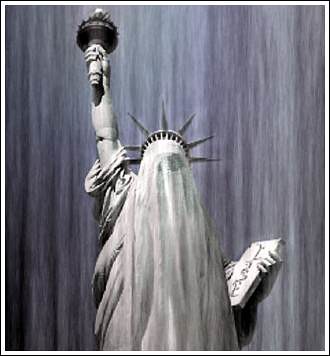
BY TAWFIK HAMID
Recently, the Bush administration opened up a sad new front in the war on terrorism: a battle against words. Yes, the federal government has begun a concerted effort to make certain terms effectively off-limits in official communications. It's all included in a new memo prepared by the Extremist Messaging Branch of the National Counter Terrorism Center, called "Words that Work and Words that Don't: A Guide for Counterterrorism Communication."
"It's not what you say but what they hear," says the memo, in bold, italic lettering.
Among the verboten (or think-twice-before-you-say-them) words: "Jihadist" and "Mujahedeen" (which should be replaced by "violent extremist" or "terrorist") and "Islamo-fascism."
In the eyes of the feds, the use of such terminology boosts support for radicals by giving them an air of religious credibility, and turning off moderate Muslims who might otherwise sympathize with our anti-terror cause.
As a Muslim reformer - who once counted himself among the world's Islamists and jihadists before turning away from terrorism and toward liberalism - I consider this a tragically flawed understanding of the war on terrorism in which we are now engaged. Read more ...
Recently, the Bush administration opened up a sad new front in the war on terrorism: a battle against words. Yes, the federal government has begun a concerted effort to make certain terms effectively off-limits in official communications. It's all included in a new memo prepared by the Extremist Messaging Branch of the National Counter Terrorism Center, called "Words that Work and Words that Don't: A Guide for Counterterrorism Communication."
"It's not what you say but what they hear," says the memo, in bold, italic lettering.
Among the verboten (or think-twice-before-you-say-them) words: "Jihadist" and "Mujahedeen" (which should be replaced by "violent extremist" or "terrorist") and "Islamo-fascism."
In the eyes of the feds, the use of such terminology boosts support for radicals by giving them an air of religious credibility, and turning off moderate Muslims who might otherwise sympathize with our anti-terror cause.
As a Muslim reformer - who once counted himself among the world's Islamists and jihadists before turning away from terrorism and toward liberalism - I consider this a tragically flawed understanding of the war on terrorism in which we are now engaged. Read more ...
Source: NY Daily News
H/T: Shariah Finance Watch




















